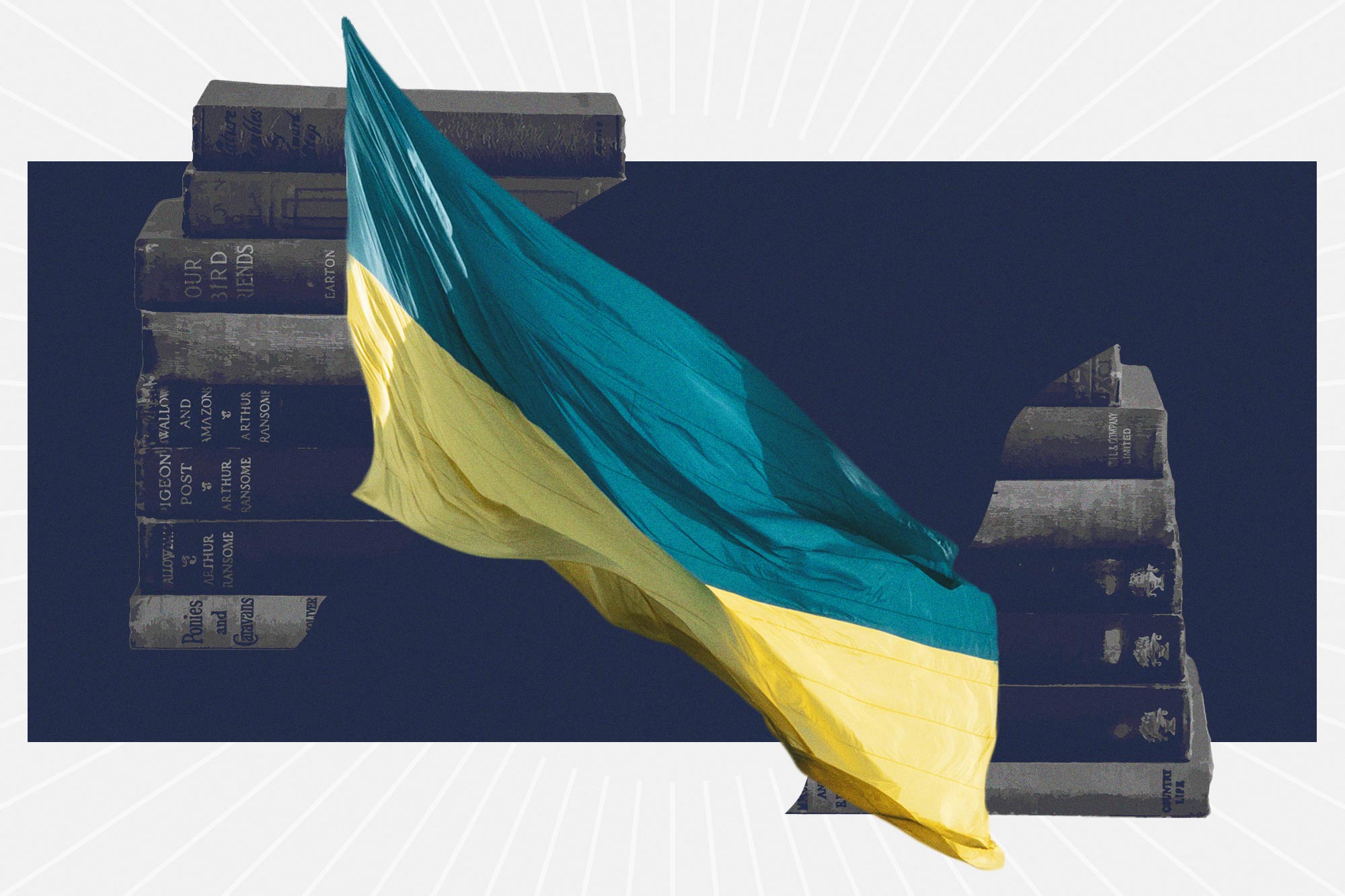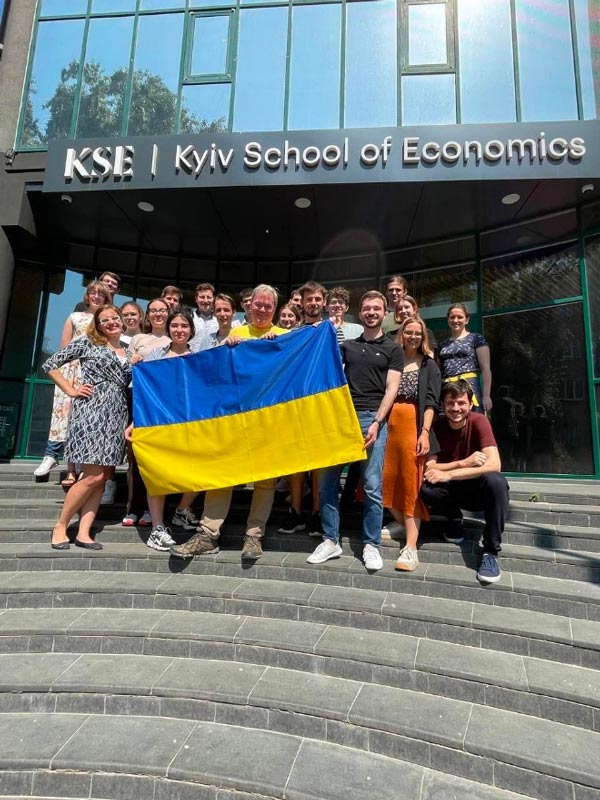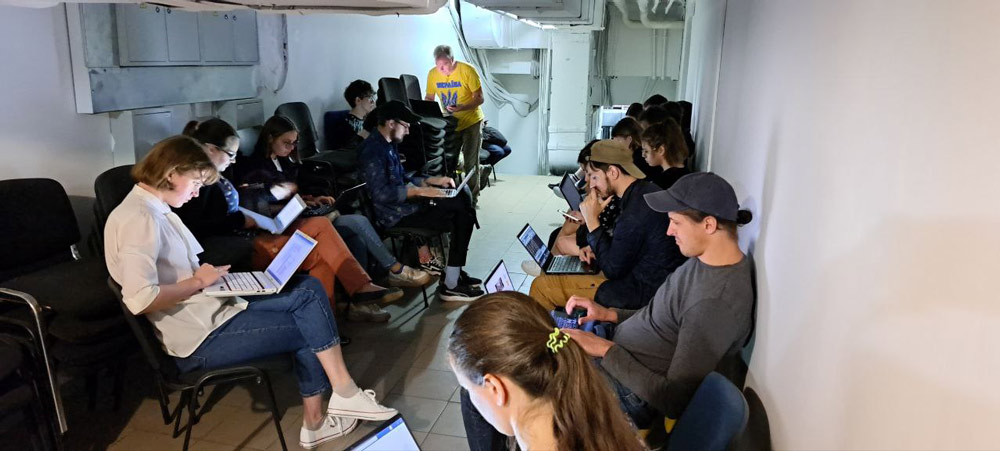The windows in his classroom are blocked with bags. His car alarm once went off because of a shelling’s overwhelming shockwaves. He hasn’t seen his wife and two daughters in months – not since he helped them evacuate the country.
Taras Tsymbal, a sociology professor and dean at Taras Shevchenko National University of Kyiv in Ukraine’s capital city, can attest to the seriousness of war. It’s been around him since Russia’s first strikes in late February.
So when he read the Facebook post earlier this month – the one from the Kyiv School of Economics inviting students to take a one-week data science course taught in-person by an instructor from the United States – he thought it was a mistake.
“It had to be online,” Tsymbal said.
Though he has a doctoral degree, Tsymbal still has an itch to learn. He enjoys being a student every now and then. He signed up for the data science course.
But when no Zoom link arrived in his inbox on the scheduled first day of class, Tsymbal made the 20-minute drive to the Kyiv School of Economics as details of the Facebook post started to ring true in his head.
Maybe, he thought, someone was crazy enough to come all this way to teach during wartime in Ukraine.
It was all confirmed moments later when Tsymbal saw with his own eyes Arthur Small, a lecturer from the University of Virginia’s School of Engineering and Applied Science, standing at the front of a classroom.










